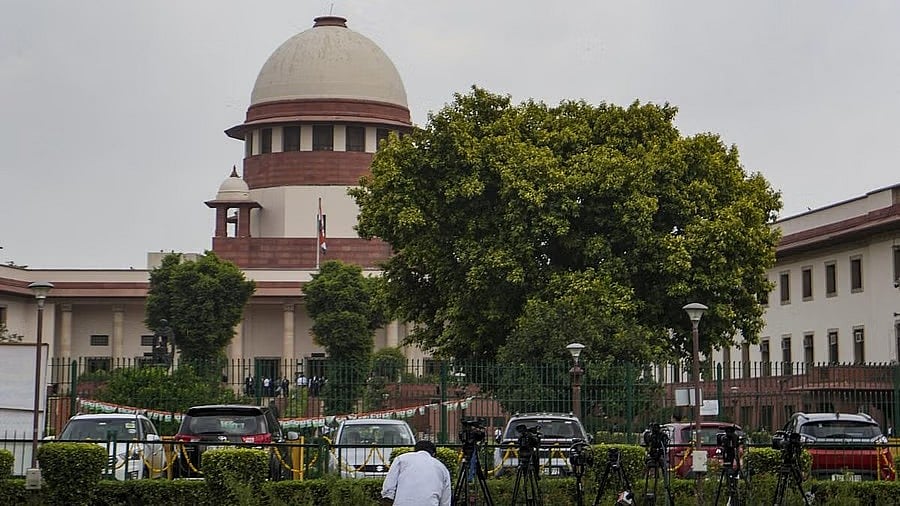
The Supreme Court of India.
Credit: PTI Photo
New Delhi: The Supreme Court on Friday said the principles of natural justice are not applicable at the stage of reporting a criminal offence as giving an opportunity of being heard prior to the commencement of a criminal action, i.e. registration of an FIR, would frustrate the very purpose of initiating a criminal proceeding, which is to meet the ends of justice.
A bench of Justices M M Sundresh and Rajesh Bindal set aside orders passed by different High Courts with regard to FIRs lodged in connection with fraudulent activities carried out with banks.
Such actions were initiated as the Reserve Bank of India issued the Master Directions on Frauds – Classification and Reporting by commercial banks and select FIs, on July 01, 2016. The directions provided a framework for banks, to enable early detection and reporting of frauds, and consequently taking actions in a timely manner.
The High Courts quashed not only the administrative actions initiated in pursuance of the Master Directions, but also the FIRs registered and the subsequent criminal proceedings initiated against the respondents.
The High Courts quashed the administrative actions on the ground of non-adherence to the principles of natural justice, more specifically the principle of 'Audi Altarem Partem', as the concerned respondents were not given an opportunity of being heard before the companies’ bank accounts were declared as fraudulent/blacklisted.
Consequently, the High Courts also quashed the criminal proceedings initiated against the respondents, holding that they are a natural corollary to the administrative action of declaring the bank accounts as fraudulent.
Considering the CBI's appeals, the bench said an FIR, by taking cognizance of an offence, merely sets the law into motion which has nothing to do with a decision on the administrative side, made by a different authority.
"When an administrative order is set aside on the ground of non-compliance of a legal necessity or mandate, the facts mentioned thereunder could still be the basis for the registration of an FIR," the court said.
It held that an administrative action and a criminal proceeding stand on different footings and there is an apparent distinction between the two. The former is within the domain of the RBI and the complainant-Banks, while the latter is within the domain of the appellant-CBI.
The court also clarified setting aside of an administrative action on the grounds of violation of the principles of natural justice does not bar the administrative authorities from proceeding afresh.
Expressing full agreement with the submission made on behalf of the appellant- CBI, the bench said, the High Courts exceeded their jurisdiction by quashing the FIRs and the subsequent criminal proceedings, despite no challenge being made to the same.
